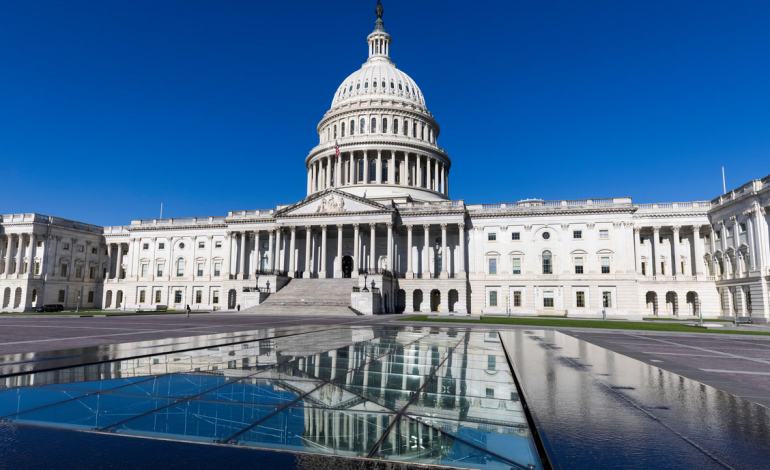Congress is back Tuesday with one giant, blinking deadline and a dozen political tripwires. If lawmakers can’t cut a funding deal by Sept. 30, parts of the federal government shut down on Oct. 1. That alone would make for a tense month. Add in fights over the Jeffrey Epstein files, lawmakers’ stock trading, a push to rewrite Senate rules for nominations, and a White House crime agenda—and September on Capitol Hill looks unusually combustible.
Here’s what’s on deck—and why it’s messy.
Republicans won big in the spring by locking in last year’s spending levels. This time, party leaders are split on strategy. Senate Majority Leader John Thune and senior appropriators favor a short-term stopgap through year’s end to keep the lights on while they chase a broader deal—potentially bundling in an extension of Affordable Care Act premium subsidies that lapse soon.
Conservatives in both chambers want to jam Democrats with a full-year spending bill at lower levels, plus policy riders. The White House just made trust even scarcer by moving to cancel roughly $5 billion in previously approved foreign aid, an aggressive “pocket rescission” that infuriated Democrats—and some Republicans—and upped shutdown odds. Sen. Susan Collins blasted it as a “clear violation of the law.” Chuck Schumer warned:
“If Republicans are insistent on going it alone, Democrats won’t be party to their destruction.”
Democrats also want to renew those ACA tax credits. Some on the right counter they’ll only talk if the price tag is offset with Medicaid cuts—a nonstarter for Democrats and a handful of GOP senators. Translation: even a “simple” short-term patch could get complicated fast.
House leadership’s first headache hits immediately. Reps. Thomas Massie (R-Ky.) and Ro Khanna (D-Calif.) are launching a discharge petition—the rare tool that lets a bipartisan majority force a floor vote—to require the Justice Department to release the full Epstein files. They’re staging a Capitol Hill presser with victims to press the case and say they can hit the 218 signatures needed.
Speaker Mike Johnson has called the effort “moot,” hinting a leadership-backed alternative could get a vote instead. But Massie and Khanna argue momentum is only building as DOJ dribbles out documents. Across the Capitol, Senate Democrats on Homeland Security have set a Sept. 2 deadline for DOJ cooperation and are prepared to sue if stonewalled—guaranteeing the story doesn’t fade.
Bottom line: this isn’t just about transparency. It’s a power play that could fracture Republicans while leadership is trying to keep the conference united for the funding fight.
Another cross-pressure: whether to ban members of Congress from trading individual stocks. Rep. Anna Paulina Luna (R-Fla.) is readying her own discharge petition on a bill by Rep. Tim Burchett (R-Tenn.). She’s holding fire—for now—and giving leaders until the end of the month to bring up a version on their terms. Democrats say they won’t sign onto a narrow ban and are touting a more comprehensive bipartisan package that’s been baking for months.
Johnson, privately, has argued some members need to trade to cover expenses like kids’ tuition—an argument that won’t play well outside the Beltway. If leadership stalls, Luna says she’ll pull the pin.
Senate Republicans think the confirmation pipeline for Trump’s nominees is too slow and are weighing the “nuclear option”—a party-line rules change to speed things up. Ideas include slashing debate time for most nominees, bundling confirmations, or reducing procedural hurdles. Some senators want to cut the number of posts requiring Senate confirmation—but that takes a law, not just a rules tweak. They’ll need near-unity; at least one Republican, Thom Tillis, says he won’t go nuclear.
Meanwhile, the nominations fight is colliding with two high-stakes dramas:
- The White House’s attempt to fire Fed Governor Lisa Cook, prompting a legal showdown over Federal Reserve independence.
- Turmoil at CDC, where newly installed Director Susan Monarez was pushed out amid clashes over vaccine policy, drawing bipartisan oversight demands of HHS Secretary Robert F. Kennedy Jr.
Expect hearings, subpoenas, and floor time to vanish into these fights.
Trump wants a sweeping crime bill, framing it as a midterm winner. Early talks with DOJ staff touched on eliminating no-cash bail nationwide and codifying recent executive actions. House Republicans also plan a mid-September vote to extend Trump’s 30-day takeover authority over DC police beyond Sept. 9. That will meet a Senate blockade, where 60 votes are needed. The White House also wants $2 billion to “beautify” Washington—expect Republicans to attach crime and policy riders to any D.C. cash.
Strategists see a crime package as both base-motivating and message-shifting—away from intra-GOP fighting over Epstein and stock trading.
Both chambers will chew on the massive annual defense policy bill. One friction point: a cryptocurrency-related provision favored by House hard-liners, which could spark unusual cross-party alliances and floor skirmishes even as leaders try to keep the bill on schedule.
Sen. Lindsey Graham is again pushing a bipartisan Russia package—co-sponsored with Sen. Richard Blumenthal—to designate Russia a state sponsor of terrorism and ramp up penalties until Ukrainian children from occupied territories are returned. Leadership has flirted with bringing it up; the timing may hinge on White House diplomacy and Europe’s moves. Thune says he’ll provide Trump “any economic leverage needed.” Johnson says “it may come to that.”
Leaders are trying to kick the biggest fight to later:
- House: the FY 2026 Energy & Water spending bill.
- Senate: the defense policy bill moves forward.
Behind closed doors, expect strategy huddles about a short CR vs. a year-long funding play—and how (or whether) to package ACA subsidies.
A shutdown a year before the midterms is dangerous for everyone. The White House insists Democrats will ultimately accept a “clean” CR rather than shoulder blame for a shutdown. Democratic leaders, stung by the spring deal, say they won’t be rolled again—especially after the foreign-aid rescission. Vulnerable House Republicans want ACA subsidies extended; conservatives want offsets. Every move crimps the next.
All of this unfolds while the House grapples with an Epstein transparency vote that scrambles usual alliances, and the Senate toys with rewriting its own rules. Sprinkle in disputes over the Fed and public health leadership, and you’ve got a month where even small blowups can spin into full-blown crises.
Or, as one House member put it more bluntly: it’s going to be a rough fall.
With input from Politico, CNN, NBC News, and the Guardian.










The latest news in your social feeds
Subscribe to our social media platforms to stay tuned